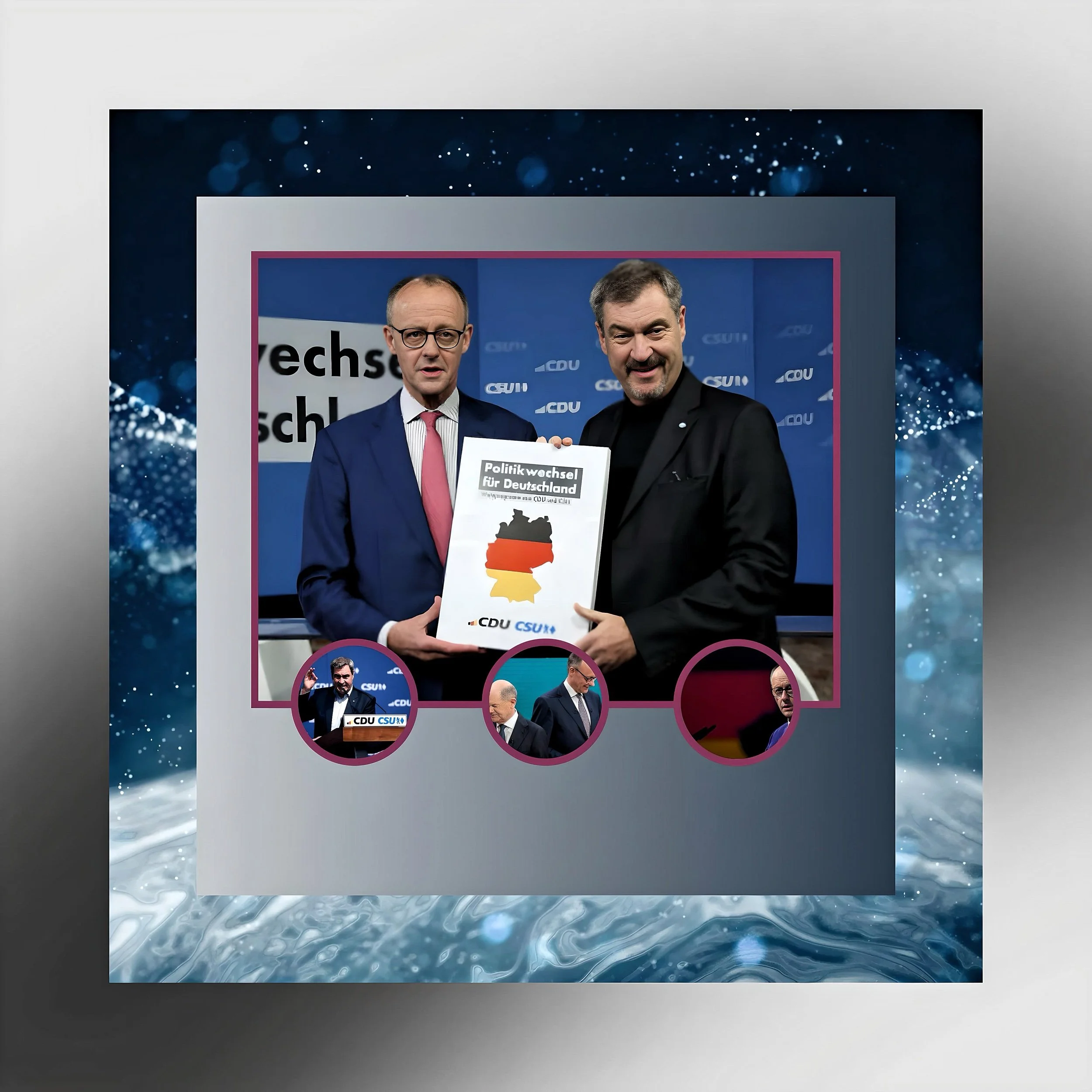60 days in Germany - Friedrich Merz’s Initial Leadership: Policy Priorities, Coalition Dynamics, and Global Perceptions
Introduction
Following the February 2025 federal election, Friedrich Merz assumed leadership of Germany amid a fragmented political landscape, with his CDU/CSU alliance securing 28.6% of the vote and the far-right Alternative for Germany (AfD) rising to 20.4%.
While Merz has not yet completed 60 days in office as of April 6, 2025, his early agenda has focused on reshaping Germany’s fiscal, migration, and defense policies while navigating coalition negotiations with the Social Democratic Party (SPD).
FAF analyzes his policy initiatives, adherence to election promises, coalition-building challenges, stance toward the AfD, and international reception of his leadership.
Domestic Policy Priorities: Defense and Migration Overhauls
Revising Fiscal Rules for Defense Spending
A cornerstone of Merz’s agenda is exempting defense expenditures exceeding 1% of GDP from Germany’s constitutional debt brake, which limits structural deficits to 0.35% of GDP.
This proposal, developed alongside the SPD, aims to address chronic underinvestment in military capabilities exacerbated by Russia’s aggression in Ukraine.
The plan includes a €500 billion infrastructure fund and expanded borrowing allowances for federal states.
However, the Greens have criticized the framework for neglecting climate investments, demanding safeguards to ensure defense allocations do not divert from renewable energy goals.
Merz has attempted concessions, such as redirecting €50 billion to climate initiatives and broadening “defense” to include intelligence and civil preparedness, but negotiations remain contentious.
Immigration Restriction and Border Controls
Merz has prioritized stringent migration policies, capitalizing on public outrage following high-profile attacks by migrants, including the January 2025 Aschaffenburg stabbing.
His “Five Point Plan” mandates permanent border controls, accelerated deportations, and a de facto entry ban for individuals without valid documents.
While critics argue these measures contravene EU asylum laws, Merz asserts national security necessitates overriding “dysfunctional” EU agreements like Dublin and Schengen.
He has clarified that his policies do not entail full border closures, despite AfD leader Alice Weidel’s accusations of reneging on campaign promises.
Legal experts emphasize that Merz’s approach aligns with existing frameworks for rejecting asylum seekers at borders rather than suspending free movement entirely.
Coalition Formation: CDU/CSU-SPD Partnership
Negotiations and Policy Trade-offs
Merz’s CDU/CSU and the SPD finalized exploratory talks on March 8, 2025, agreeing in principle to a coalition focused on economic revival, migration reform, and increased defense cooperation. Key compromises include:
Economic Growth Targets
Aiming for 1–2% GDP growth after two years of recession, supported by relaxed borrowing limits.
Welfare and Labor
The SPD secured commitments to preserve unemployment benefits and minimum wage adjustments, while the CDU/CSU obtained stricter migrant work requirements.
Military Aid to Ukraine
Merz pledged conditional support for supplying Taurus missiles, reversing SPD Chancellor Olaf Scholz’s opposition.
The coalition aims to finalize terms by Easter 2025, though disagreements over the debt brake’s scope and climate funding persist.
Rejection of AfD Collaboration
Ideological and Strategic Grounds
Political and Ethical Objections
Merz has unequivocally ruled out cooperation with the AfD, citing its pro-Russia stance, opposition to Western alliances, and extremist rhetoric.
He condemned the AfD’s silence on Russian aggression in Ukraine and accused the party of undermining Germany’s democratic values.
CSU leader Markus Söder reinforced this position, warning that collaboration would render Germany a “vassal state of Moscow.”
Merz’s refusal persists despite the AfD’s electoral gains, particularly in eastern states, where it dominates polls.
Legal and Constitutional Barriers
The AfD’s classification as a “suspected extremist” party by German intelligence further legitimizes Merz’s stance.
Historical precedents, such as the post-war cordon sanitaire against far-right groups, reinforce mainstream parties’ commitment to isolating the AfD.
While the AfD has demanded influence over migration policies, Merz has instead relied on SPD support to pass legislation, as seen in the January 2025 border-control motion.
International Reception: Shifting Transatlantic Dynamics
Strained U.S. Relations and European Autonomy
Merz, a self-described “convinced transatlanticist,” has signaled a pivot toward European defense autonomy amid doubts about U.S. reliability under Donald Trump.
He advocates expanding France and the UK’s nuclear deterrence to cover Germany and accelerating EU military integration.
This shift marks a departure from decades of NATO dependence, with Merz warning that the alliance may need overhauling by mid-2025.
European leaders, including Emmanuel Macron, have endorsed Merz’s calls for a “strong, sovereign Europe,” though skepticism remains about Germany’s capacity to lead.
Middle East and China Policy
Merz maintains unwavering support for Israel, resuming arms deliveries and opposing ICC investigations into Prime Minister Benjamin Netanyahu. He also took a hawkish stance on China, criticizing the Scholz administration’s engagement with COSCO and labeling Beijing a “security threat.”
Conclusion
Challenges Ahead
Merz’s early leadership reflects a blend of ideological continuity and pragmatic adaptation. While his defense and migration agendas align with CDU/CSU’s conservative base, reliance on SPD support necessitates compromises that risk alienating right-wing voters.
The AfD’s resilience and internal EU disagreements over fiscal policy pose ongoing challenges.
Internationally, Merz’s push for European strategic autonomy may redefine Germany’s role, though success hinges on reconciling domestic priorities with broader geopolitical realities.
As coalition talks conclude, Merz’s ability to unify fragmented constituencies will determine his administration’s longevity and impact.






